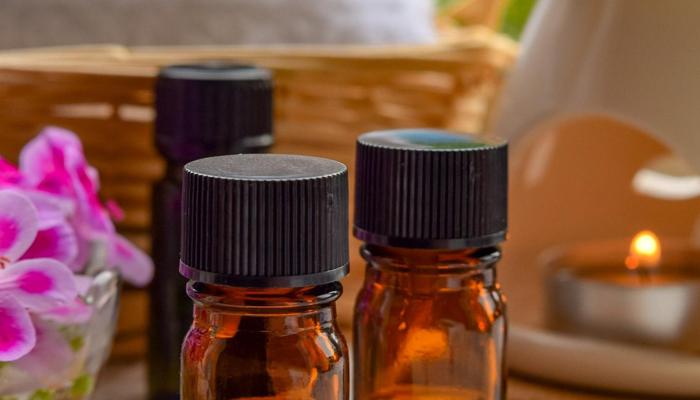Unveiling the Science Behind Aromatherapy: Dive into how scents influence mood & well-being. Explore the aromatic realm's secrets
In the bustling streets of India, where the aroma of spices mingles with
the fragrance of blooming jasmine, the concept of aromatherapy might seem like an age-old tradition. But beyond the fragrant allure lies a fascinating science exploring how scents impact our mood and well-being.

Let's delve into the aromatic world and uncover the secrets behind this holistic practice.
Aromatherapy uses essential oils for health benefits
Aromatherapy, at its core, involves using essential oils extracted from plants to improve physical and emotional health. These oils, often derived from flowers, leaves, roots, or resins, contain volatile aromatic compounds that readily evaporate and disperse into the air.
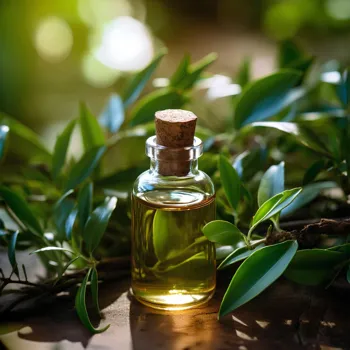
When inhaled, these compounds stimulate receptors in the nose, triggering a cascade of events that ultimately affect our brain and nervous system. The power of scent is more than just a pleasant experience; it's a direct line to our emotions.
Smell connects to emotions, memories via brain's limbic system
Our sense of smell, or olfaction, is intimately linked to the brain's limbic system, which is responsible for emotions, memories, and learning. When we inhale an aroma, the olfactory receptors send signals to the olfactory bulb, a structure located at the base of the brain.
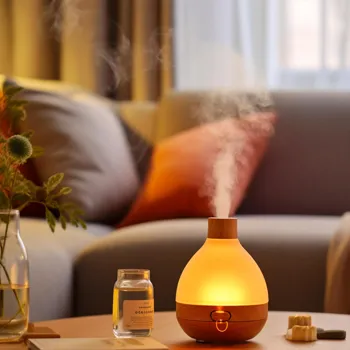
From there, the signals travel to the amygdala, the brain's emotional center, and the hippocampus, which plays a vital role in memory formation. This close connection explains why certain scents can evoke strong emotions or trigger vivid memories.
Scent's impact on mood varies; some essential oils have proven effects
For instance, the aroma of sandalwood might transport you back to a serene temple visit, while the scent of lavender could remind you of a calming evening spent at home. The impact of scent on mood is unique to individuals, as personal experiences and associations shape our emotional responses.

However, certain essential oils have been scientifically shown to have specific effects on mood and well-being.
Inhaling lavender reduces anxiety, while citrus oils uplift mood
Lavender, for example, is renowned for its calming and relaxing properties. Studies have shown that inhaling lavender essential oil can reduce anxiety, promote sleep, and improve overall mood.
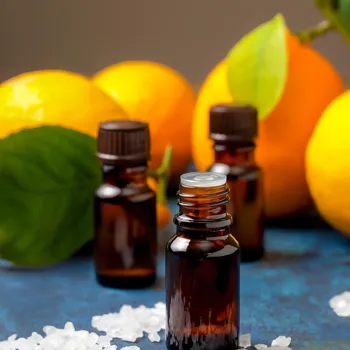
Components in lavender interacts with the nervous system, helping to reduce stress hormones and calm the mind. Similarly, citrus oils like lemon and orange are known for their uplifting and energizing effects. These scents can help combat fatigue, improve focus, and boost feelings of happiness.
The refreshing aroma of citrus can create a positive and invigorating atmosphere, perfect for starting the day or overcoming an afternoon slump.
Rosemary boosts cognition, eucalyptus aids breathing
Rosemary essential oil is often used to enhance cognitive function and memory. It stimulates the mind, improves concentration, and can help to clear mental fog. Eucalyptus is known for its cooling and decongestant properties.

It can help to clear nasal passages, relieve sinus pressure, and promote easier breathing.
Aromatherapy's brain benefits proven by scientific studies
While the anecdotal evidence for aromatherapy is compelling, scientific research is increasingly backing up its effectiveness.
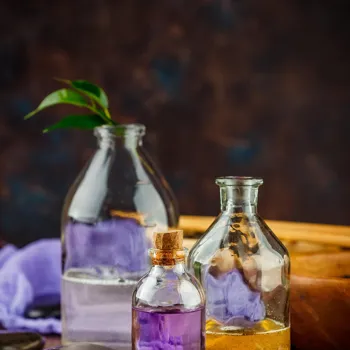
Studies using brain imaging techniques like fMRI have shown that inhaling essential oils can activate specific regions of the brain associated with emotions, memory, and stress responses.
For example, a study published in the journal "Psychiatry Research" found that inhaling bergamot essential oil reduced anxiety and improved mood in participants. The researchers observed increased activity in brain regions associated with positive emotions.
These findings provide further support for the idea that aromatherapy can have a measurable impact on brain function and emotional well-being.
Aromatherapy can reduce stress and promote relaxation
Furthermore, research has explored the physiological effects of aromatherapy on the body. Studies have shown that certain essential oils can reduce heart rate, lower blood pressure, and decrease levels of the stress hormone cortisol.
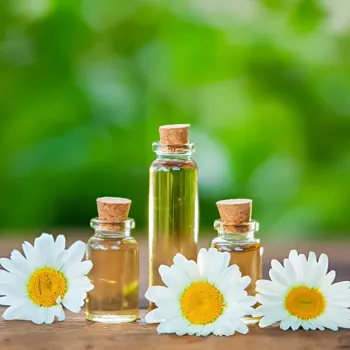
These physiological changes suggest that aromatherapy can help to regulate the body's stress response, promoting relaxation and overall well-being. While more research is needed to fully understand the mechanisms of action, the evidence suggests that aromatherapy is more than just a placebo effect.
Incorporate aromatherapy with essential oil diffusers for mood benefits
There are several ways to incorporate aromatherapy into your daily routine to harness its mood-boosting benefits. One popular method is using an essential oil diffuser. Diffusers release essential oil molecules into the air, allowing you to inhale them passively.
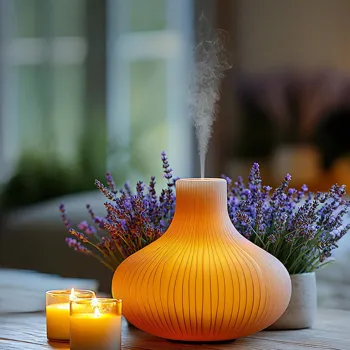
You can choose essential oils based on your desired mood or needs. For example, diffuse lavender in the bedroom before sleep to promote relaxation, or diffuse lemon in the study area while working to improve focus.
Aromatherapy benefits through skin absorption and inhalation
Another way to enjoy aromatherapy is through topical application. Essential oils can be added to carrier oils like coconut oil or almond oil and massaged into the skin. This allows the essential oils to be absorbed into the bloodstream, providing systemic benefits.
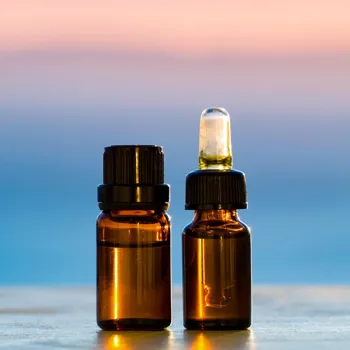
Always dilute essential oils properly before applying them to the skin, as undiluted oils can cause irritation. You can also add a few drops of essential oil to a warm bath for a relaxing and aromatic experience.
Inhaling the steam infused with essential oils can help to clear your mind and soothe your body.
Aromatherapy safety tips for essential oils
While aromatherapy is generally safe, it's important to take certain precautions. Essential oils are highly concentrated and can be irritating to the skin if not diluted properly. Always perform a patch test on a small area of skin before applying a new essential oil to larger areas.
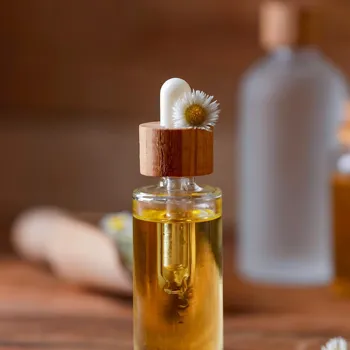
Consult with a qualified healthcare professional before using aromatherapy if you have any underlying medical conditions or are pregnant or breastfeeding.
Choose pure essential oils, store properly, use caution around children and pets
Choose high-quality, pure essential oils from reputable sources. Adulterated or synthetic essential oils do not have the same therapeutic benefits and may even contain harmful chemicals. Store essential oils in dark glass bottles in a cool, dry place, away from direct sunlight.
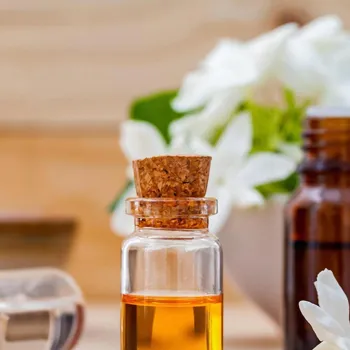
The shelf life of essential oils can vary, but most oils will last for several years if stored properly. Always exercise caution when using essential oils around children and pets. Some essential oils are toxic to animals, so it's important to research which oils are safe to use.
Aromatherapy enhances well-being through scents, promoting balance and joy
Aromatherapy offers a natural and effective way to promote emotional well-being. By understanding the science behind how scents impact our mood, we can harness the power of essential oils to create a more balanced and joyful life.
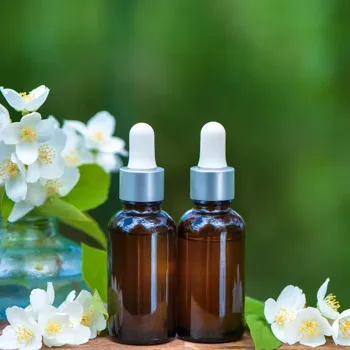
From calming lavender to energizing citrus, the world of aromatherapy is filled with fragrant possibilities. So, breathe deep, embrace the aromatic journey, and discover the transformative effects of scent on your mood.
In the vibrant tapestry of Indian life, where scents are interwoven into the fabric of daily experiences, aromatherapy offers a timeless way to connect with our well-being.
AI Generated Content. Glance/InMobi shall have no liability for the content